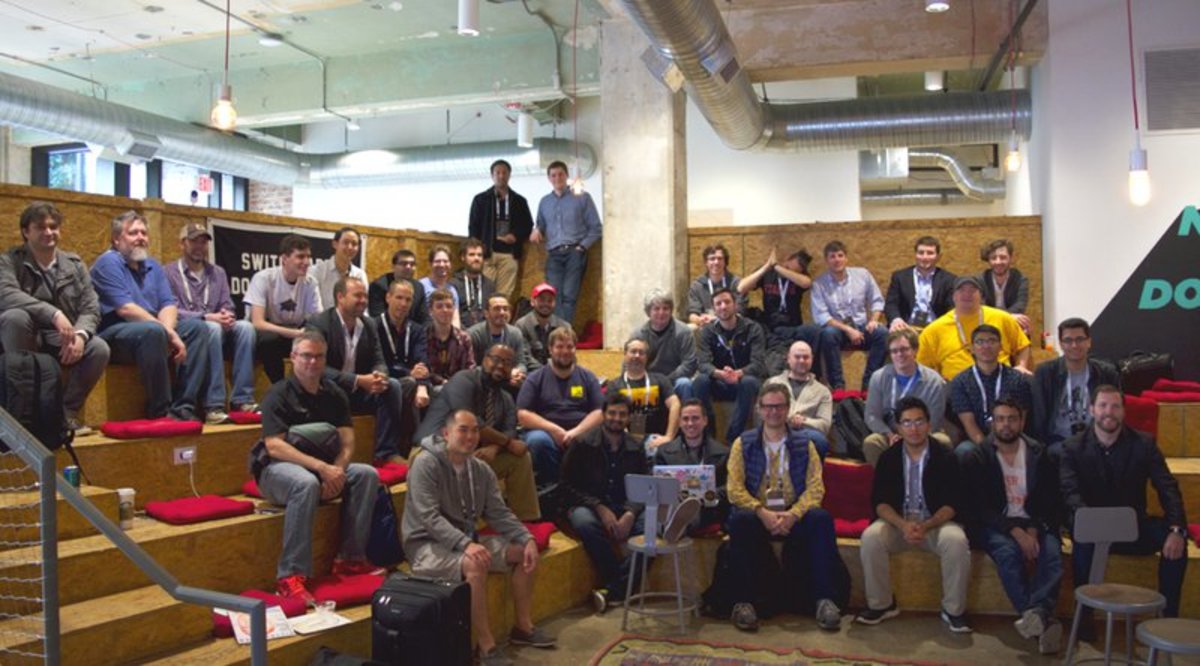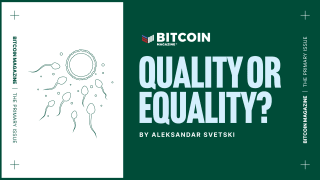
First place at the Distributed: Markets hackathon was taken this year by Tom Nguyen for his project, Dead Man’s Block. Named after the dead man’s switch, Dead Man’s Block is a decentralized fail-safe trigger that releases digital wills to designated beneficiaries.
Here’s the way it works: The owner must check in periodically, based on a set time duration, via an alert to confirm that he is still alive. If the set time passes without an owner’s response, the second layer is triggered, which requires at least three validators (family, friends or a lawyer, for example) to confirm his death status. After validation, the third and final layer requires confirmation by at least two public notaries. At any given time, the owner has the flexibility to add and remove as many beneficiaries and validators as he wishes.
Grand Prize: DeadMansBlock
fail-safe trigger to release digital wills to beneficiarieshttps://t.co/SX4EJVJvq6@Mrtomnguyen#distmarketspic.twitter.com/Xr9YHOmAqK
— Robert Schwentker (@schwentker) February 27, 2017
" rel="noopener external noreferrer" target="_blank">“I’ve been learning about blockchain [technology] for the past three months, and I wanted to learn more by doing,” said Nguyen. The self-taught blockchain developer also said that his inspiration for the project came from the realization that there are many reasons why it is beneficial for people to have some kind of plan — or, in this case, a protocol — to help deal with unexpected and tragic events.
Nguyen admitted that, at the beginning of the hackathon, he quickly discovered one of his project’s biggest obstacles would be determining how to encrypt so much sensitive data and ensure that it remains private.
The Hackathon
Organized by BTC Media, the Distributed: Markets 24-Hour Hackathon took place at Switchyards Downtown Club in Atlanta, Georgia, from February 24–25. The challenge was to build a blockchain application using the APIs, SDKs and other developer tools “to power the financial infrastructure of the future.”
While the hackathon showcased the talent of students, developers and aspiring entrepreneurs from across the United States, all shared a unique passion for exploring how blockchains can solve technological problems.
“Blockchain [technology] has always been a hobby,” said Chris Magistrado, a malware researcher at the Georgia Institute of Technology with background in information security. “I started with [a] Princeton Coursera course on Bitcoin and Blockchain. I’m looking for new job opportunities and the hackathon gives me the chance to show my marketability and my talent.”
Working with Josh Vorick and Milind Lingineni, Magistrado’s team took second place for their project, Bazaar Loans. The team used the decentralized marketplace, OpenBazaar, to establish a crowdfunding-type “Get a loan” feature to the system, giving users the option to support their preferred merchants. The key to Bazaar Loans is that it is intended to improve the economic and social system of OpenBazaar. That being said, the most difficult part of the project for the team was determining how to deal with merchants who might not pay back their loans.
“A blockchain hackathon has multiple benefits,” explained master of ceremony and chief #hackathon Twitterer Robert Schwentker (@schwentker) just before the judges announced the winners. Schwentker is the co-founder of Blockchain University, as well as an educator, organizer, speaker and overall expert on blockchain technology.
He made it clear that hackathons give developers a chance to learn about and experiment with new technology. They are also great networking opportunities. Schwentker also explained that hackathons are essentially résumé builders. “Besides potential prize money, the competition gives winners recognition for their talent. They can leverage that recognition as a badge of success to show investors.” Schwentker’s role in both helping devise the judging criteria and aiding participants in articulating the value of their ideas was critical to the hackathon’s success.
“I’ve invested in a few startups that have come out of blockchain hackathons,” said Jeremy Gardner, hackathon judge, venture capitalist and founder of the Blockchain Education Network.
“I liked Coffee Chain,” said hackathon judge and TSYS Director of Innovation Russell Moore, speaking of the third-place winner. “I want to track my coffee and know where it comes from — immutability could prove organics.”
Moore attends hackathons to keep track of disruptive technology, but he also loves witnessing competitors present solutions to technology problems. In his opinion, immutability is one of the central problems that blockchain technology solves. “If you don’t have a trust issue then you don’t need a blockchain.”
The other two judges were Chris Kleeschulte, Senior Software Engineer at BitPay, and Dmitry Prudnikov, CTO, at Bitsane.
Third place: CoffeeChain using @Hyperledger#fabrichttps://t.co/rzoBscMxA5@joshmather@yenhwas@tonyrose023#distmarkets#distmarketspic.twitter.com/zV6ovnX8A5
— Robert Schwentker (@schwentker) February 27, 2017
" rel="noopener external noreferrer" target="_blank">
Robert Schwentker summarized a good hackathon project best when talking with the Bazaar Loans team: “Why only create the doorknob to a 100-story building when in the same amount of time, you can create an awesome tent: The goal is a functional mockup, not a blueprint.”
An honorable mention went to the Bitscript team, who developed a web-based Bitcoin script editor.
Here’s a list of some of the other notable projects from the Distributed: Markets hackathon:
- SpotMe: a P2P crowdfunded loans feature for urban payday loan users
- BitFunnel: anchors IoT data to the Bitcoin blockchain for the oil industry
- StockYard: a decentralized commodities market for high-value unique items
- FreightChain: a decentralized shipping insurance platform for consumers to insure delivery of parcels
- Substrate: a blockchain-powered mesh network for IoT devices
- CryptoPOS: a Poynt POS for digital currency checkout
The two-day event preceded the Distributed: Markets conference held on Monday at the Ritz-Carlton hotel in downtown Atlanta.










